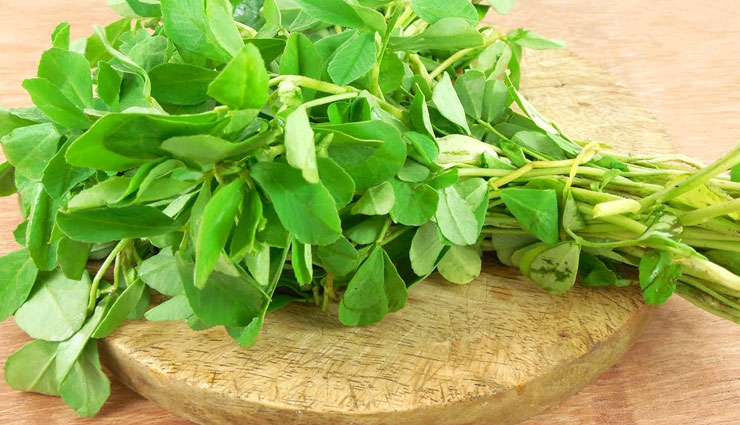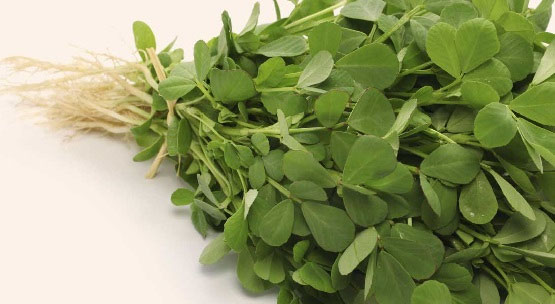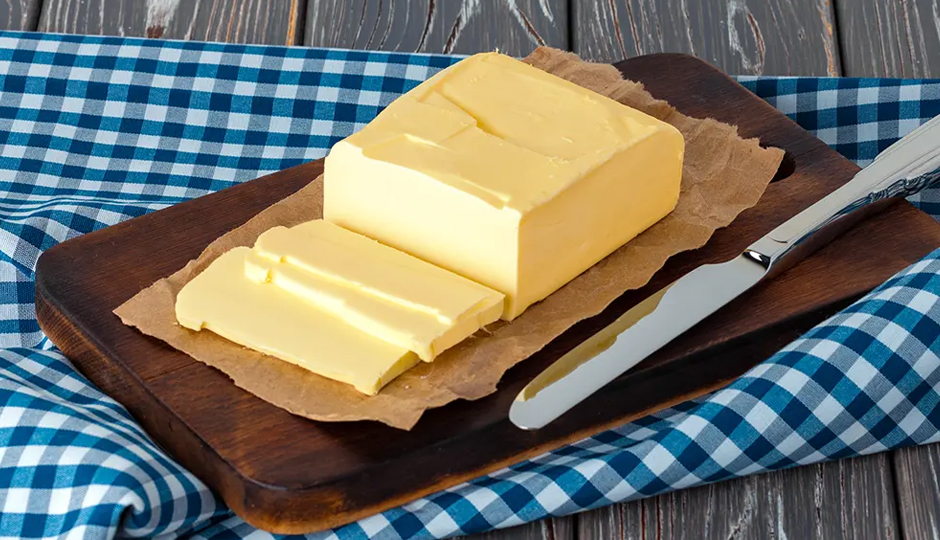- Home›
- Healthy Living›
- 5 Health Benefits Of Fenugreek Leaves
5 Health Benefits Of Fenugreek Leaves
By: Priyanka Maheshwari Fri, 03 Jan 2020 1:19:36

Fenugreek, also known as methi, is a popular herb commonly found in the Mediterranean region of the world. However, due to its strong medicinal properties and uses in Ayurvedic medicine, it has gained popularity worldwide.
The nutrients found in this herb include iron, manganese, copper, magnesium, phosphorus and vitamin B6. Fenugreek also contains a number of powerful phytonutrients
* Control Diabetes
This herb is highly beneficial for people who have diabetes. Its hypoglycemic property plays a key role in improving glucose tolerance and lowering blood sugar levels. Plus, the fiber in fenugreek slows down the absorption of carbohydrates and sugars.
* Stimulates Breast Milk Production
For nursing mothers, fenugreek helps stimulate breast milk production. Both the seeds and leaves work as excellent galactagogues to stimulate breast milk production.A 2011 study published in the Journal of Alternative and Complementary Medicine notes that maternal galactagogue herbal tea supplementation enhances breast milk production and facilitates infant birth weight regain in early postnatal days.

* Balances Cholesterol Level
Fenugreek also has cholesterol-lowering power. It has a good amount of soluble fiber, which increases the viscosity of the digested food and inhibits the uptake of cholesterol and bile acids.It helps reduce the low-density lipoprotein (LDL or ‘bad’ cholesterol) level in your blood. Bad cholesterol can cause blockages in your blood vessels, which can lead to a heart attack or stroke.
* Improves Heart Health
Fenugreek has antioxidant and cardioprotective benefits, which help improve overall heart health. It works as a blood thinner to prevent blood clots, which can stop blood flow to the heart, lungs and brain. Fenugreek also lowers blood pressure.
* Cures Constipation
Fenugreek contains a good amount of soluble fiber that absorbs water in the intestines and adds bulk to the stools. This triggers contractions and helps move stools through the intestines easily to ease constipation.





